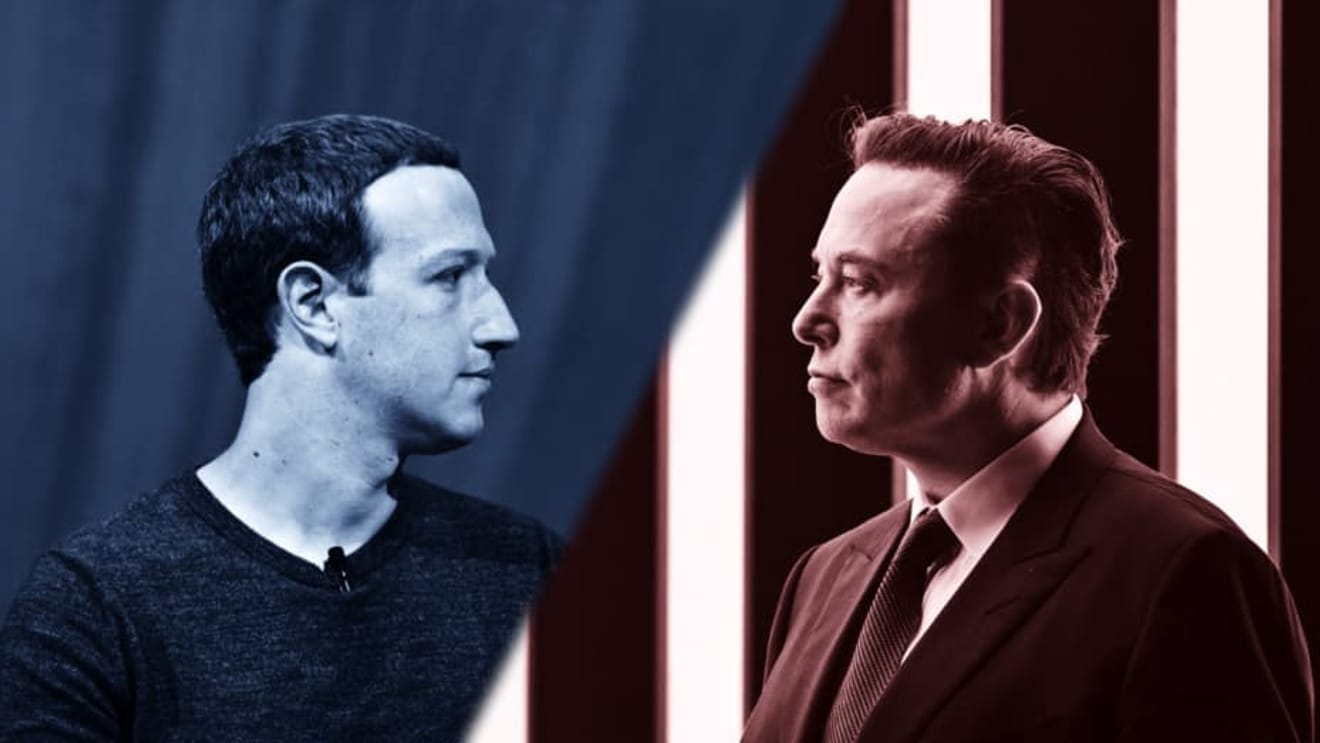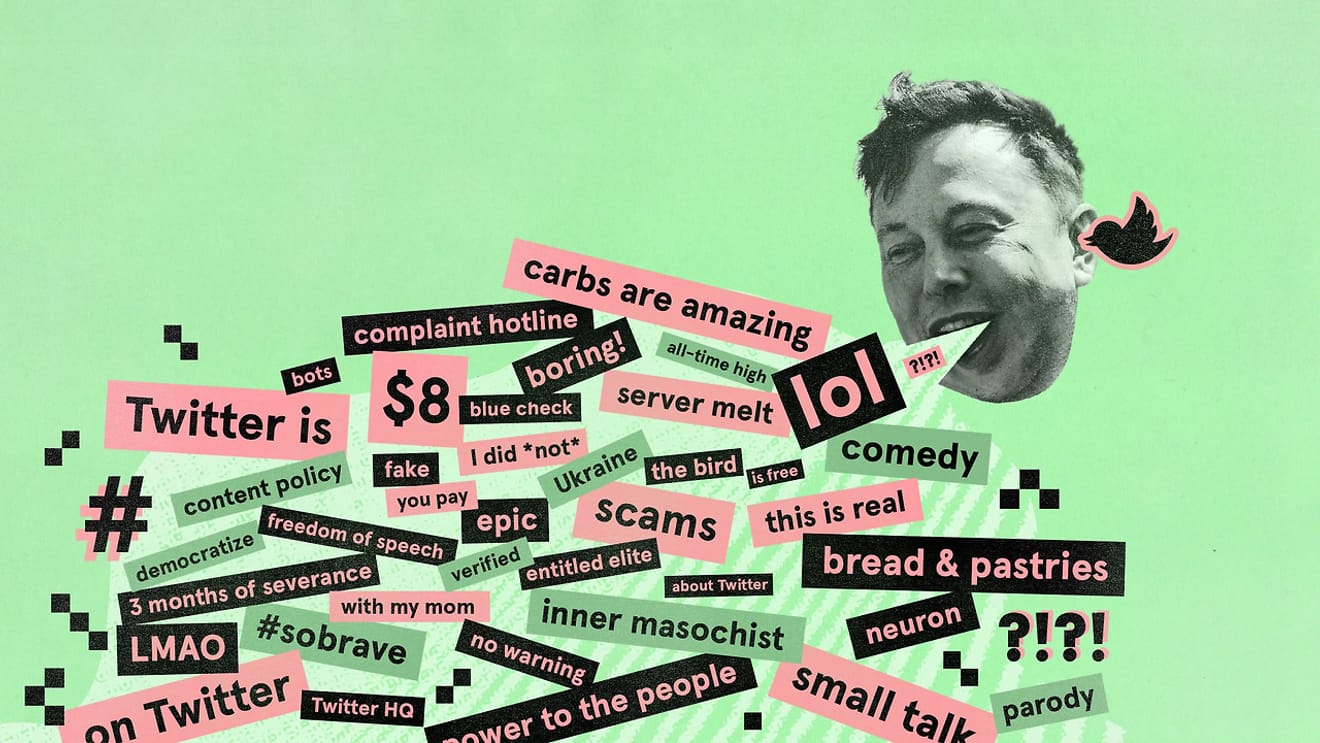The global attention surrounding the potential real-life fight between Twitter CEO Elon Musk and Meta CEO Mark Zuckerberg, which began last June, has now entered a new phase with the emergence of Meta's new service, 'Threads,' designed to rival Twitter. Threads, a platform for communication using text within a 500-character limit, has seen a surge in popularity since its launch on July 5th, attracting over 30 million users in just 16 hours. This has revitalized public interest in the social media industry, which had been experiencing a period of stagnation.
The ease of sign-up through Instagram account linkage, coupled with users' familiarity with existing platforms that had previously been dominated by algorithmic choices rather than connections with close friends, may have fueled the rapid initial growth of the Threads service. However, in the early feeds of those who have joined, one can easily observe questions about what kind of content to post in this unfamiliar space. In other words, we need to pay attention to the phenomenon where the intense desire of users to enhance their status within this new digital platform is causing confusion and hesitation in the planning of their initial posts.
“Status” is a colloquial term used to describe an individual's position within an informal social hierarchy of importance. Every community has those at the top who are famous, powerful, and respected, a large middle ground, and a lower stratum that feels relatively disadvantaged. Our position within this hierarchy governs our everyday experiences as individuals. Sociological studies indicate that social status influences long-term happiness, motivates behavior, and can be considered a fundamental human desire in itself, as it becomes a goal in and of itself.

Zuckerberg and Musk say they are ready to face off in a “Vegas Octagon.” CNBC Make It | Gene Kim
In late 2022, Twitter effectively beganselling ‘socially recognized influence’ in the form of a blue checkmark verification previously only available to verified public figuresfor a monthly fee of $8. Superficially defined as a subscription service to protect user identity, enhance recognition, and provide access to new features, the public response was negative. While hundreds of thousands subscribed, a substantial portion of the most active users did not, and some who did subsequently canceled their subscriptions. Why did Twitter face this outcome? Furthermore, how can the new service, Threads, which also offers a similar paid verification badge structure, respond differently?
In his book ‘Status and Culture,’ W. David Marxargues that the question of ‘Can you buy status with money?’ necessitates behavioral residue reflecting how one lives rather than mere expensive possessions. In essence, maximizing and stabilizing status ultimately requires a connection to patterns of behavior we understand as culture – customs, traditions, fashion, trends, and preferences. For instance, while we can attend a wedding in sportswear, we willingly bear the social cost of choosing formal attire appropriate to the occasion, as failure to meet the unspoken expectations of other guests could lead to exclusion.
In this regard, the author contends that high status can be achieved by combining three key elements. Firstly, one must associate with groups of high status. The tailoring districts of Naples, Italy, and Savile Row in London have historically attracted royalty, nobility, and wealthy individuals, and their names alone hold inherent status in the public consciousness. Secondly, a cost in the form of social signals is necessary. Status requires time, knowledge, networks, and specific tastes, making it difficult to attain. Doctorate and MBA degrees are commonly pursued for this very reason, as they lead to the acquisition of status. Thirdly, a credible justification beyond simply pursuing status must be provided. Business class seats effectively conceal the pursuit of superior status through lounge access, priority boarding, and personalized services by leveraging the assumption that executives need to handle work and rest sufficiently while flying.

ILLUSTRATION: ROSIE STRUVE; Wired.com
Applying this framework to the outcome of Twitter's paid blue checkmark policy yields the following interpretation. Firstly, the blue checkmark within Twitter, spearheaded by Elon Musk, was intimately linked to his unique political views and values. Consequently, for those who sought to share his vision and interests, the blue badge served as a passionate symbol, akin to a large-scale gathering. Conversely, for others on the opposite side, not having the checkmark became a meaningful choice that signified their membership in a ‘different’ community. Furthermore, the monetization of the checkmark effectively diminished its prior value as a social signal. Lastly, the extended tweet length and editing features offered as benefits for verified users were hard to justify for those who did not pay.
While quitting Instagram remains a challenging experience for many, often likened to liberation from a smartphone, as evidenced by the recent enthusiasm for the ‘quietly leave’ feature in KakaoTalk group chats,platform usage is increasingly perceived as a realm of active choice. This signifies that these platforms no longer hold the same opportunity to claim a presence on top of popular culture as before. It is crucial to acknowledge that the battle surrounding status has become a primary strategic consideration not only for users but also for platform companies.
*This article is the original content published in the Electron Times' named column on July 10, 2023.
References
Comments0